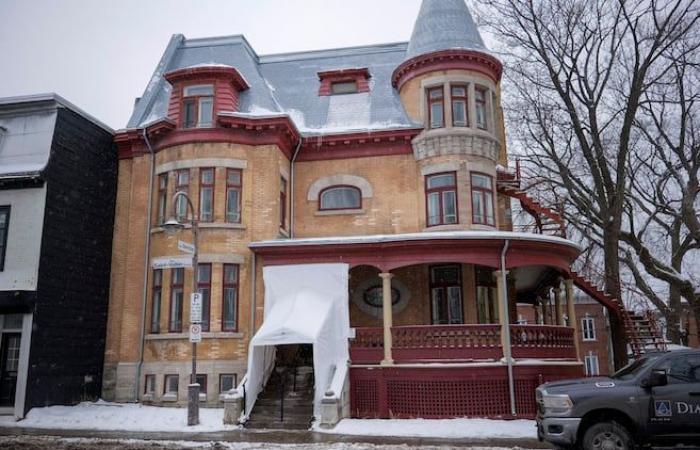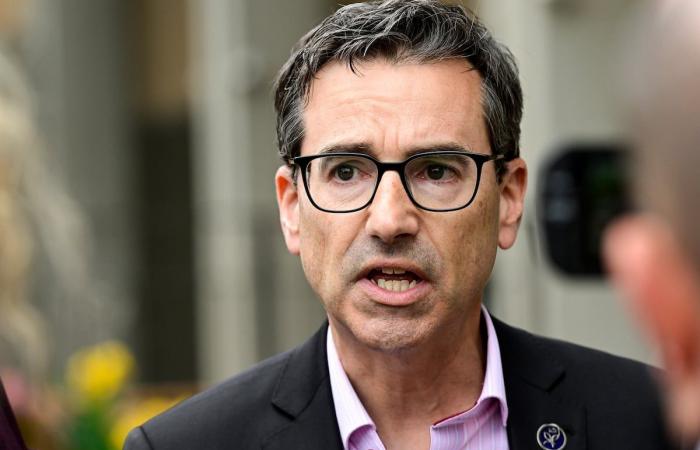For more than forty years, the psychoanalytic treatment center for psychotic adults “le 388”, located in Saint-Sauveur, has received particularly vulnerable psychotic people.
Users are assessed and treated “in depth” and “over the medium to long term” using a community psychoanalysis method that has developed over time, explains its general director and co-founder, psychiatrist Lucie Cantin.
But the adventure of the 388, which enjoys an international reputation, could soon end.
In recent months, the Integrated Health and Social Services Center (CIUSSS) of the Capitale-Nationale announced the end of funding for the organization, and therefore, the closure of the resource.
And despite protests from professionals and administrators of the center, health network managers cemented their decision last Friday, by calling users to tell them the news.
A question of resources
At the CIUSSS de la Capitale-Nationale, we explain the decision by the need to use public funds wisely.
In recent years, the organization considers that it has considerably increased its mental health service offering, justifying the revision of the agreement with 388, which operates “in parallel” with the CIUSSS. “We don’t have the luxury of doing things twice,” summarizes the organization’s director of mental health, addictions and homelessness programs, Véronique Fugère.
She specifies, however, that the decision has nothing to do with the budgetary restrictions imposed by Santé Québec. The CIUSSS points to the low number of new admissions at 388 to justify its decision. He calculates that he can treat “10 times more users” within his own services with the 388’s annual budget of 1.5 million.
Ms. Fugère assures that no user will be left to their own devices, and that everyone will be redirected to another resource.
She also affirms that it will be possible for users of 388 to continue their treatments, but within the confines of the CIUSSS rather than in the organization’s premises.
A service that “works”
Regardless of the reasons given by the CIUSSS, Dr. Cantin denounces the decision to cut a service with proven effectiveness and an established reputation.
“It’s proven that people who pass here are less likely to be rehospitalized, that they are more likely to resume an active life in their community,” she insists, data and scientific journals at the support.
At the front, Ms. Lucie Cantin, general director of the organization 388, accompanied by members of the professional team. (Frédéric Matte/Le Soleil)
She also does not accept the argument that users of 388 will be able to turn to other CIUSSS services.
“Often, these are people who have tried everything in the hospital system […] For many, 388 is their last hope of getting out of it, and then the CIUSSS suddenly stops everything,” she laments.
“We are in the process of pulling the rug out from under users’ hopes of getting out of this situation.”
— Dr Lucie Cantin, founder and general director of 388
Although she cannot explain the managers’ decision, Dr. Cantin is not surprised.
At the turn of the 2000s, the center narrowly avoided closure, she recalls. But the intervention of MP Agnès Maltais in the matter had changed the situation.
-Supported by the three deputies from downtown Quebec, the PQ Pascal Paradis and the solidarity activists Étienne Grandmont and Sol Zanetti, she hopes to convince Quebec to maintain 388.
The “narrow-minded” and “cavalier” CIUSSS
The latter are also particularly indignant at the decision of the CIUSSS to put an end to the activities of 388.
“I can’t explain why we decided to put an end to an initiative that has proven itself for no real reason,” angers the PQ MP for Jean-Talon, Pascal Paradis. For him, it is “a perfect example of a narrow-minded bureaucracy”.
“It gives impressive results and it works,” he pleads. There is no good reason to stop something that works and saves us money by reducing hospitalizations.”
Beyond the decision to end the activities of 388, Pascal Paradis sharply criticizes the actions and means used by the CIUSSS de la Capitale-Nationale.
Like Ms. Cantin, he is particularly offended that the CIUSSS directly contacted the patients of 388 after having decided to cut funding for the resource, causing “distress and disorganization”.
Mr. Paradis, who has been involved in the matter for several months, does not hesitate to speak of “relentlessness” and “intimidation” to describe the manners of the CIUSSS.
The MP for Jean-Talon, Pascal Paradis, strongly denounces the decision and the manners of the CIUSSS de la Capitale-Nationale. (Caroline Grégoire/Archives Le Soleil)
The member for Taschereau, Étienne Grandmont, makes the same observations.
He says he is “stunned” by the CIUSSS’s “very cavalier” ways of doing things. “I feel like they are on a mission to close 388, and they want to do it no matter the consequences.”
“The representatives of the CIUSSS act as bullys.»
— Étienne Grandmont, solidarity deputy for Taschereau
The two elected officials also believe that they have been cheated by the CIUSSS, which allegedly reneged on commitments made during a meeting with the Minister of Social Services, Lionel Carmant. Senior officials from the CIUSSS are said to have undertaken to evaluate the resource’s services before making a final decision.
“But we never had proof that this had been done before they announced the closure,” denounces MP Grandmont, echoing the reproaches of Pascal Paradis. “That’s really no way to work.” Both promise to bring the matter back to the National Assembly.
Despite the opinion of elected officials, the CIUSSS de la Capitale-Nationale judges that it has acted correctly in the matter. He attributes the community’s reaction above all to the sensitivity of the matter and the dedication of the professionals who work at 388.
Minister Carmant’s office claims to support the reorganization of services announced by managers.
“However, I demanded that the entire clientele followed by this clinic be taken care of by the establishment and that each patient continue to receive their treatment […] so that no one falls into a crack,” he explains to Le Soleil.
“And I fully intend to ensure that my directives are respected for the well-being of users.”







